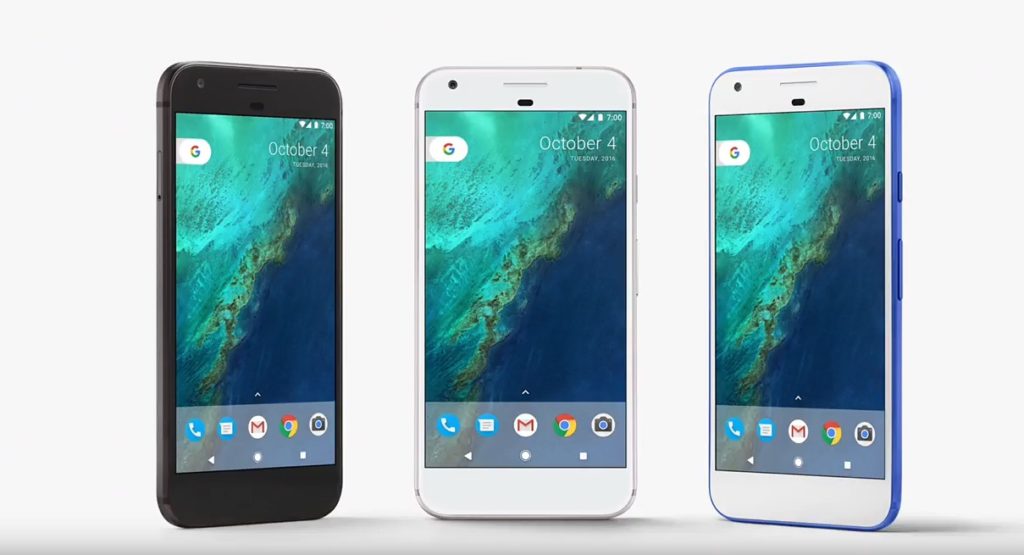During its Tuesday event keynote, Google unveiled a new line of products designed to be “AI First”—a term the company used to describe the current age of technology use, particularly on mobile. Google recently found that 87 percent of survey participants turned to search functions first when looking for information. The natural progression, the company feels, is a personal AI assistant to take searches even further.
“Okay Google”
As a company whose name is synonymous with internet searching, creating an AI assistant is the next step in Google’s business model. Rather than attempt to copy Apple’s Siri or Microsoft’s Cortana, however, Google intends to set the standard with the knowledge base its known for. Google CEO, Sundar Pichai revealed that the company has 70 billion facts in its knowledge graph to date and Google Assistant is learning from each experience. For example, the company’s machine learning software can analyze and caption images with 93.9 percent accuracy today, compared to 89.6 percent in 2014. The program can now count objects as well as recognize colors, adding additional depth to its automated descriptions.
Text-to-speech has also improved, especially in the realm of language translation. Pichai described the company’s neural machine that analyzes sentences rather than phrases so that translations are closer to how a human would speak or write. The improved functionality is available beginning Tuesday for translating Chinese to English.
Google Assistant can be accessed by either saying, “okay, Google” or pressing the home button. For marketers, this is good news because Google specifically mentioned the ability for the new AI to pull recommended information from businesses and partners. The AI will even bring in outside messenger apps for assistance, as demonstrated by using Uber.
Pixel And Pixel XL
As expected, Google unveiled its first phone, built from the ground up by the company: the Pixel. Pixel phones are the first to come equipped with Google Assistant so that users can access the AI immediately. In addition to Assistant, Pixel phones feature:
- 5″ screen / 5.5″ XL
- 4K resolution camera
- Unlimited storage for up to 4K photography and videos on Google Photos
- Android Nougat 7.1
- VR capability with Daydream
- 2,770mAh battery / 3,450mAh battery XL that reportedly charges up to 7 hours worth of battery time in just 15 minutes
- 24/7 chat or phone support
- Google Duo, a video chat program that works across Android or iOS
- 3 colors: Quite Black, Very Silver and Really Blue
- Retail price: $649
Google has partnered exclusively with Verizon to offer data coverage, but the phone will be available for purchase from a variety of retailers, including Best Buy and on the Google Store, the latter of which offering payment plans of $27 per month.
Daydream View
The new VR headset by Google is designed for comfort and convenience, as it’s constructed from fabric and is 30 percent lighter than comparable headsets. The Daydream View fits over glasses, as well—a problem that most other headsets do not address. Daydream View comes with a remote that doubles as a game controller, as demonstrated by the exclusive Harry Potter-themed VR title, Fantastic Beasts and Where To Find Them (based on the upcoming movie), in which the user’s controller becomes a magic wand. By the end of the year, Google anticipates programs from over 50 partners, with “hundreds more” to follow in the near future. The remote itself stores inside the headset to prevent loss.
Google Wifi
Google unveiled portable Wi-Fi units designed to handle the needs of a small home or a large family, mobile and accessible throughout the home. The system is designed to customize placement based on where you need Wi-Fi the most and lets users control access. Google Wifi will be available in November for $129 each or in a 3-pack for $299.
Big step. Time to meet the family. #madebygoogle https://t.co/XODkk7eZcx pic.twitter.com/WOierwjvLp
— Made by Google (@madebygoogle) October 4, 2016
Google Home
“Okay, Google, when was the last time I washed these sweat pants?” Ok, so maybe Google Assistant isn’t quite ready to handle our busy lifestyles just yet, but it can handle a variety of wireless tasks such as playing music, answering questions and even dimming the lights, controlling the thermostat, etc. Google Home is voice-activated and linked to a number of partners such as YouTube Music, Google Music, Pandora and of course, the internet. Users can obtain answers, access music and even flip a coin, as demonstrated during the keynote.
Google Home, which uses Google Assistant, is integrated with Chromecast, so users will be able to cast photos, video and other compatible services to their TVs with a simple voice command. With Google’s upcoming Chromecast Ultra, users will be able to cast in 4k starting in November. Google Home will retail for $129, with 6 months of free access to YouTube Red. Chromecast Ultra will retail for $69.
Takeaways
We may not have flying cars, but technology is definitely moving toward a world of artificially intelligent technology. As the technology giant attempts to create a “personal Google” for each user, brands will be no doubt have access to even more ways to connect with their user base on a personal level. Bringing true virtual reality to the mobile user is a big step in making it accessible to the masses, who are more likely to invest in a headset for a phone they’re already using as opposed to a headset and a new console and a new high-end PC. SuperData Research estimates Google Daydream sales to reach $450,000 by the end of the year and continue on an upward track to $14 million by the end of 2020.
